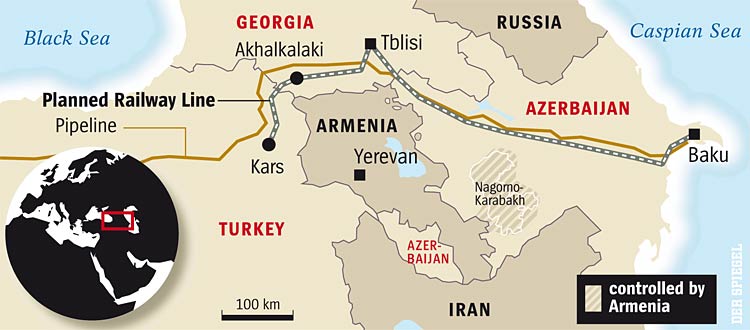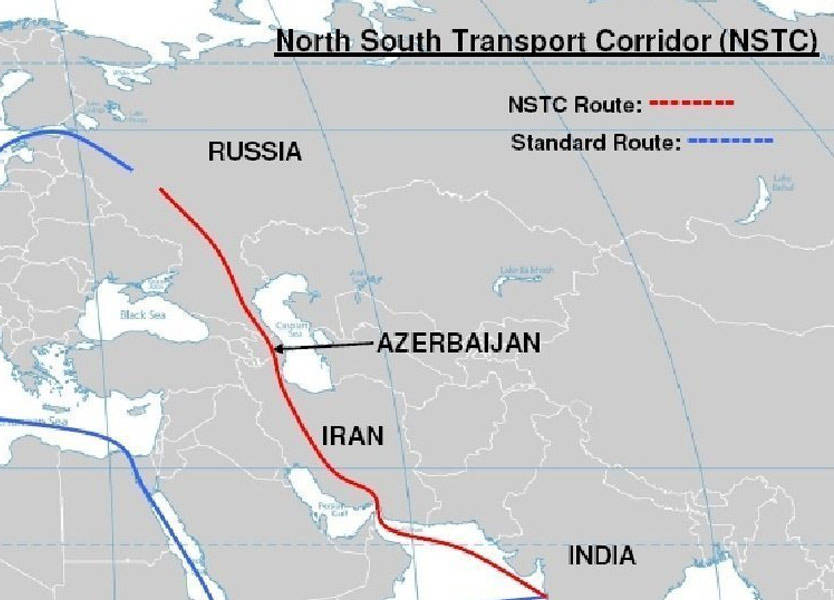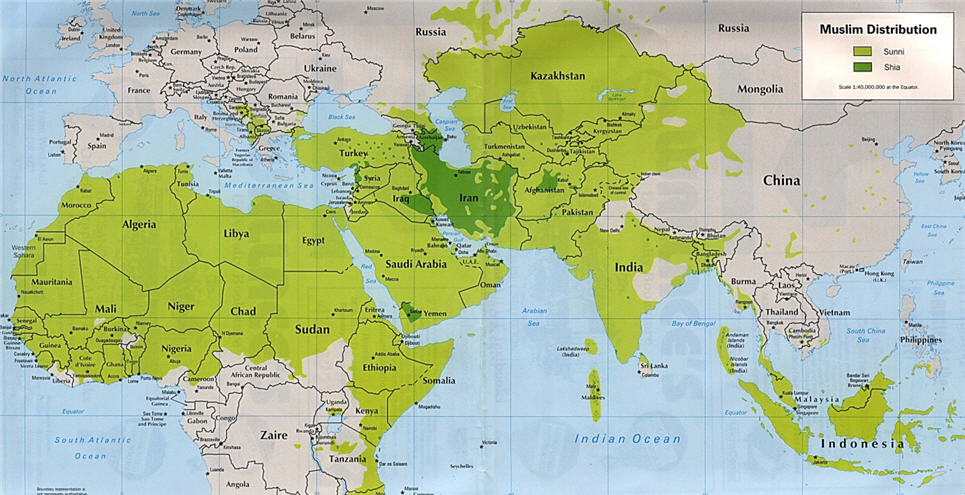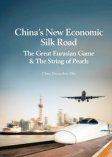Baku, the City to Watch as China’s Belt and Road Divides the Caucasus

China’s strategic interest in the Caucasus is focusing on Baku, Azerbaijan as it seeks to develop a southern rail route from China through to Europe. However, this means losing influence in Armenia as regional politics kick into play. The country has long standing issues with Turkey and serious territorial disputes with Azerbaijan, leading to Beijing essentially omitting the entire nation from its Belt and Road plans, despite the country being China-friendly and wanting to be involved. China, for its part, essentially eyes Armenia as geographically unimportant and politically awkward. That’s rather unfortunate for Yerevan, to say the least, which instead retains closer ties with Moscow than Beijing. That is a reverse policy to Georgia, which when contemplating membership of the EU and NATO in 2008, coupled with disturbances in Muslim-ruled parts of the Caucasus in Abkhazia and Ossetia, endured a brief war with Russia. Georgia’s capital, Tbilisi was bombed, and the Russian army generally trashed the place. That conflict continues to upset the Georgians, although Moscow made its point about NATO. Georgian relations with Moscow remain cool, but EU membership, although still discussed in bars, is proving a step too far from Moscow’s perspective. As can be perceived, with just three nations regarded as being Caucasia, yet with Russia bordering the same mountain range to the North, breakaway republics in Abhkazia, South Ossetia and Nagorno-Karabakh, China’s dealing with this volatile region requires both stealth, patience, and sacrifice. It is a region increasingly dominated by political nuances from Moscow, Ankara, Beijing, and to a lesser degree, Tehran and Delhi. The EU is losing regional influence.
The future of the Caucasus then includes many different dynamics. Previously Soviet, self-regarded Europeans, Orthodox, and Muslims, with a vital Belt and Road corridor running through, it is a uniquely complex, yet culturally fascinating region that sits on the divide between west and east. It has long been fought over, invaded, and cherished in equal measures. The Belt and Road to many locals here is just another example of an overseas power play. Eventually, China will loose interest and just go away as many other foreign invaders have over the centuries. But will it?
Signs that permanent, partial connectivity at least is occurring is with the BTK rail route that commences in China, crosses Kazakhstan, ships across the Caspian Sea to Azerbaijan (Baku) heading west through Georgia via Tbilisi and into Turkey at Kars. The line then extends further west into the Balkans and the borders with the EU. It is also economically viable, tests performed in 2015 involving a goods train took only 15 days to travel from South Korea to Istanbul via China, Kazakhstan, Azerbaijan, and Georgia, considerably less time than a journey by sea. The line is intended to transport an initial annual volume of 6.5 million tons and 1 million passengers, rising to a long-term target of 17 million tons and 3 million passengers. Sleeping cars will be available.

The route is strategically important as it bypasses Russia and offers China an alternative southern rail route. While the line provides an alternative to Russia’s trans-siberian route, the main loser in this is Armenia, which has historical conflict with Turkey to the south and is in territorial dispute with Azerbaijan to the north. The heavily militarized region of Nagorno-Karabakh remains disputed territory. The BTK route avoids these issues and bypasses Armenia altogether. Of additional connectivity interest is the North-South International Transport Corridor, which runs from India, has an ocean freight route connecting with Iran at Chabahar Port then runs north, and ultimately also connects with Baku.

Baku then – with all its oil and gas wealth (a pipeline runs alongside the BTK line to feed Turkey) is developing as the regions wealthiest city – thumbing its nose at isolated Yerevan, and swaggering it over Tbilisi. Cannily played relationships with both Beijing and Moscow, together with its strategic position as the main port on the Caspian have certainly helped. Yet for all that, the region remains volatile, and Baku would do well to keep the peace with its neighbors, including Armenia. Azerbaijan also has a tendency to tolerate corruption, which extends from the time honored tradition of “bakshish” – a tip for a business favor – and extends into multi-million dollar deals for oil and gas. It’s a different way of getting things done, and the ever-financially pragmatic Chinese recognize that too.
Resolving the Azerbaijan-Armenia issue meanwhile will involve humble pie being eaten by both sides as the situation concerning Nagorno-Karabakh is unsustainable in the longer term. It is possible China might at some stage wish to broker a deal, if only to develop the admittedly small domestic market and potentially keep Ankara on its toes.
Regional collisions also arise here due to religious differences – Azerbaijan is 96 percent Muslim, Georgia and Armenia staunchly Orthodox. Yet to the south, Turkey, long a secular nation, is also growing in Islamic influence, a situation that could alter the regional balance of power away from Moscow and towards Sunni Islam, a denomination that includes most of Turkey’s Muslims and represents about 90 percent of all Muslims worldwide; about 1.2 billion people.
History here though takes a bow – there has been no Sunni Muslim Caliphate since 1924 and the demise of the Ottoman Empire, effectively leaving this massive force prone to factional infighting and without a spiritual head. The on-going ebbs and flows for influence over religion runs deep, the Head of the Orthodox Church remains the Eastern Orthodox Ecumenical Patriarch of Constantinople, yet the original main temple, the Hagia Sophia in Istanbul was converted into a mosque in 1453, was desecrated in 1934, and today operates as a museum. The Patriarch, however, continues to reside in Istanbul in a predominantly Muslim country yet overseeing Orthodox Christians throughout Armenia, Georgia, The Balkans, Eastern Europe, and Russia itself. East meets West.

About Us
Silk Road Briefing is produced by Dezan Shira & Associates. The firm provide foreign investment advisory and professional services throughout Asia and maintain a specific Belt & Road advisory desk. Please email silkroad@dezshira.com or visit us at www.dezshira.com
 Related Reading:
Related Reading:
![]() Turkeys Pivotal Role in China’s Belt and Road Initiative with Europe, Central Asia, and the Middle East
Turkeys Pivotal Role in China’s Belt and Road Initiative with Europe, Central Asia, and the Middle East
![]() China Funded Lapis-Lazuli Transport Corridor Unites Caucasus and Central Asia
China Funded Lapis-Lazuli Transport Corridor Unites Caucasus and Central Asia
Silk Road and OBOR Business Intelligence
Dezan Shira & Associates´ Silk Road and OBOR investment brochure offers an introduction to the region and an overview of the services provided by the firm. It is Dezan Shira´s mission to guide investors through the Silk Road´s complex regulatory environment and assist with all aspects of establishing, maintaining and growing business operations in the region.
China’s New Economic Silk Road
This unique and currently only available study into the proposed Silk Road Economic Belt examines the institutional, financial and infrastructure projects that are currently underway and in the planning stage across the entire region. Covering over 60 countries, this book explores the regional reforms, potential problems, opportunities and longer term impact that the Silk Road will have upon Asia, Africa, the Middle East, Europe and the United States.







